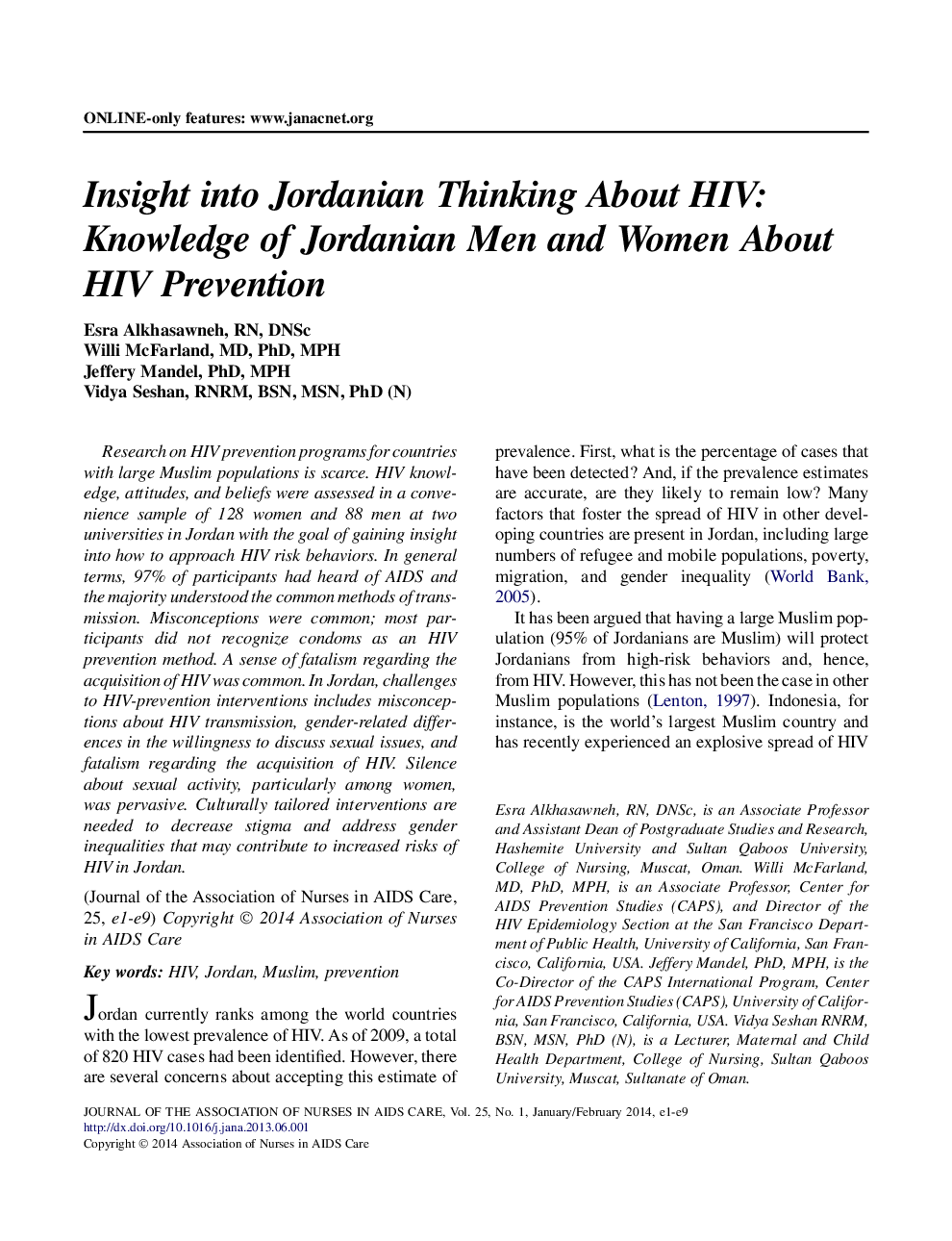| Article ID | Journal | Published Year | Pages | File Type |
|---|---|---|---|---|
| 2659042 | Journal of the Association of Nurses in AIDS Care | 2014 | 9 Pages |
Research on HIV prevention programs for countries with large Muslim populations is scarce. HIV knowledge, attitudes, and beliefs were assessed in a convenience sample of 128 women and 88 men at two universities in Jordan with the goal of gaining insight into how to approach HIV risk behaviors. In general terms, 97% of participants had heard of AIDS and the majority understood the common methods of transmission. Misconceptions were common; most participants did not recognize condoms as an HIV prevention method. A sense of fatalism regarding the acquisition of HIV was common. In Jordan, challenges to HIV-prevention interventions includes misconceptions about HIV transmission, gender-related differences in the willingness to discuss sexual issues, and fatalism regarding the acquisition of HIV. Silence about sexual activity, particularly among women, was pervasive. Culturally tailored interventions are needed to decrease stigma and address gender inequalities that may contribute to increased risks of HIV in Jordan.
